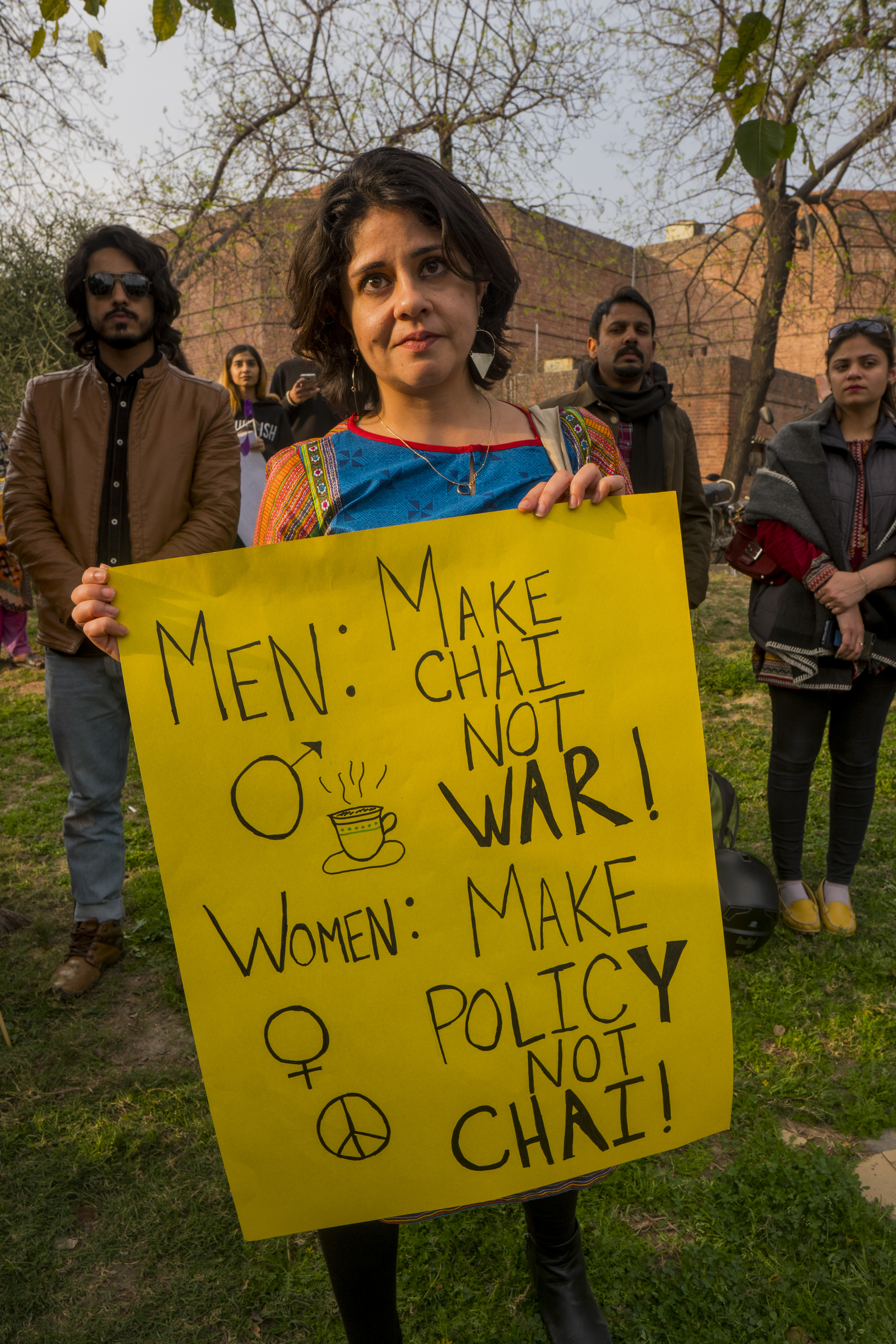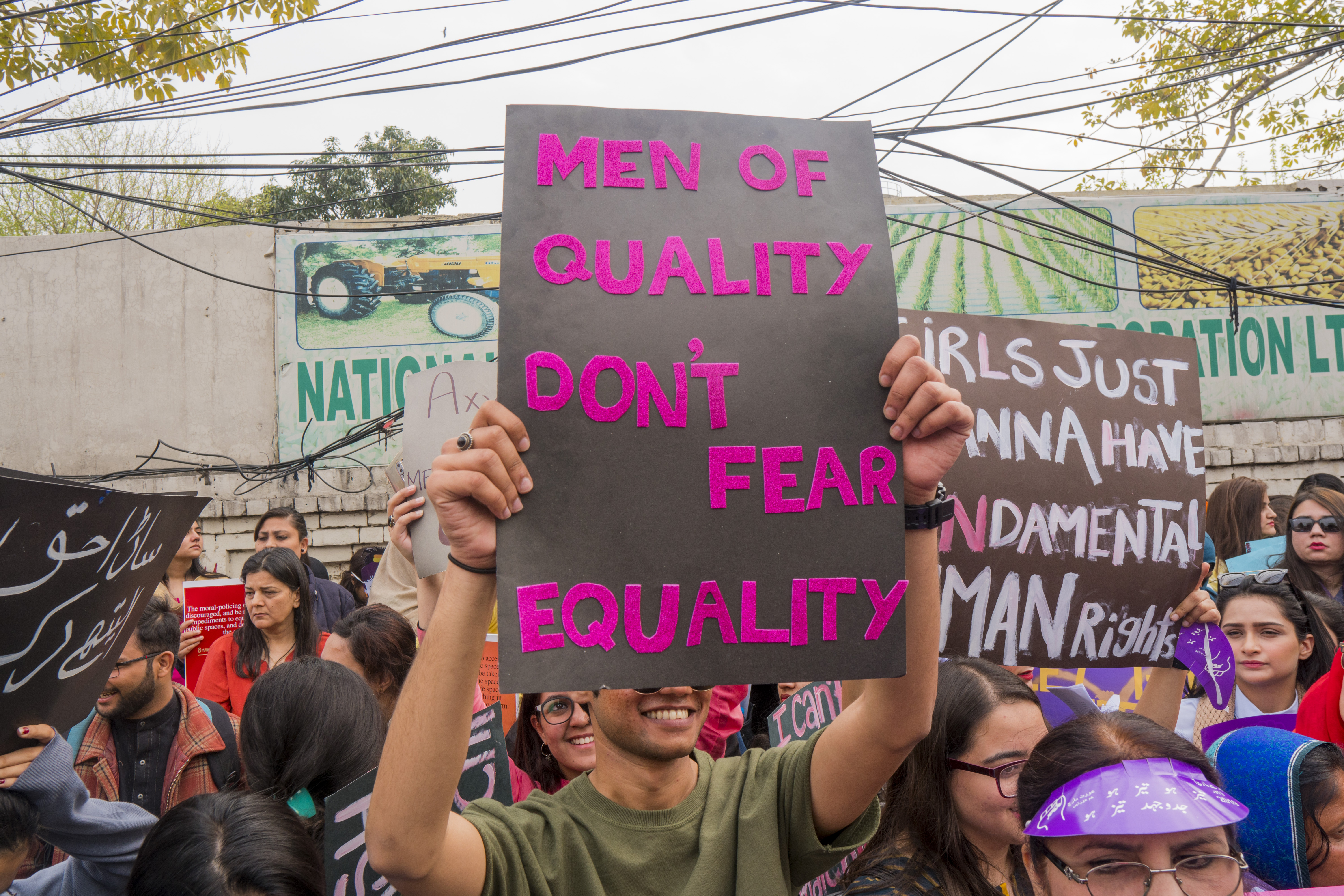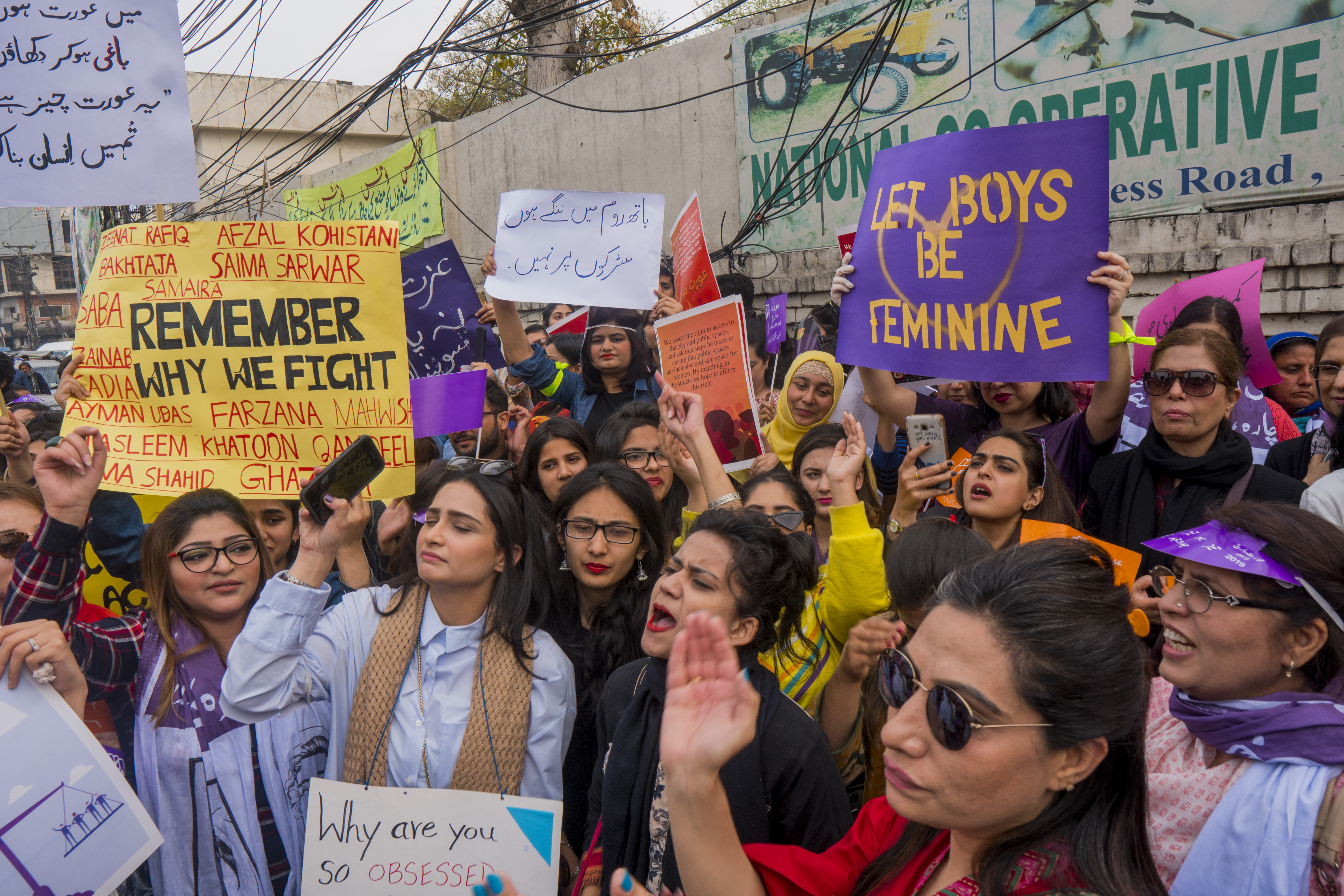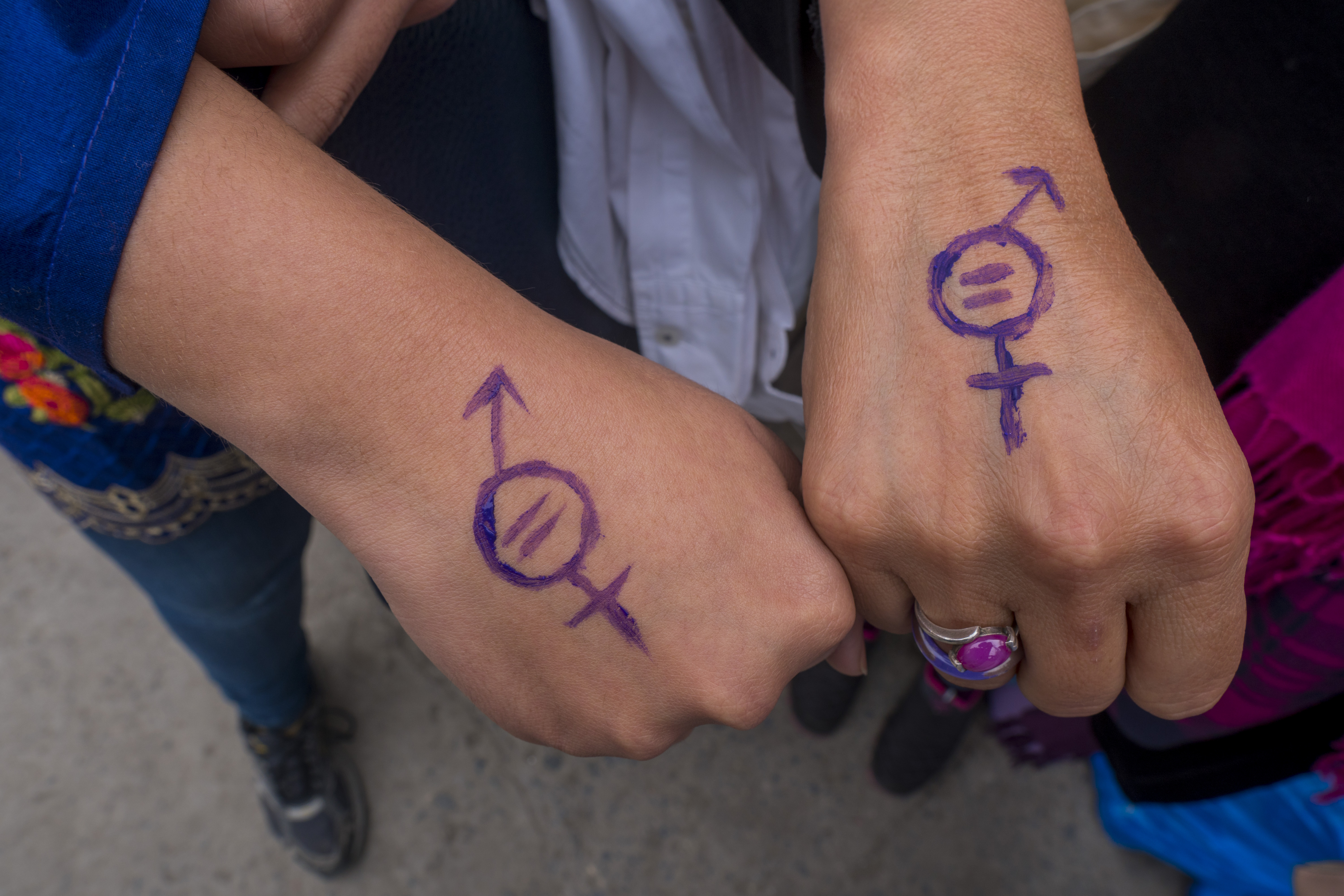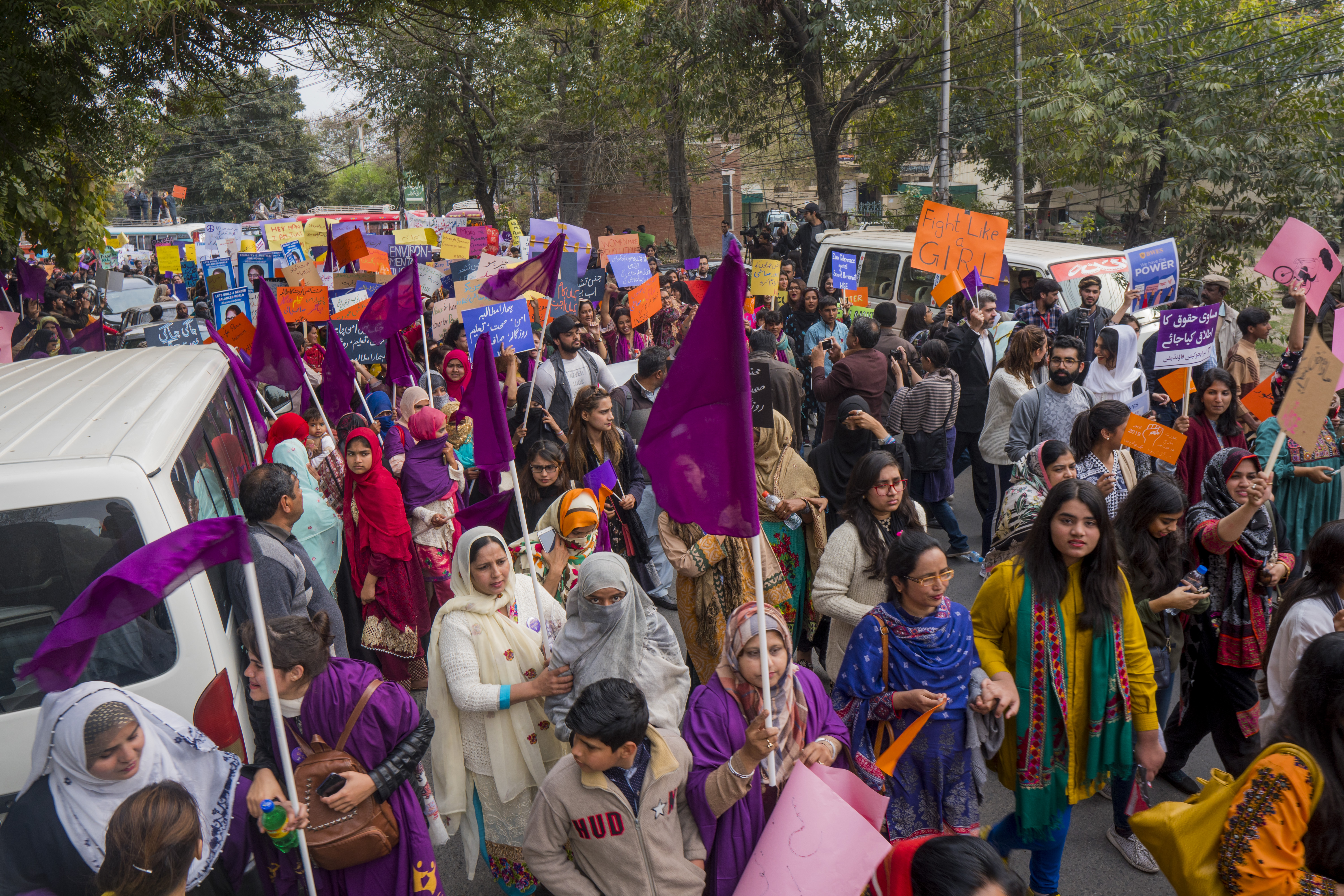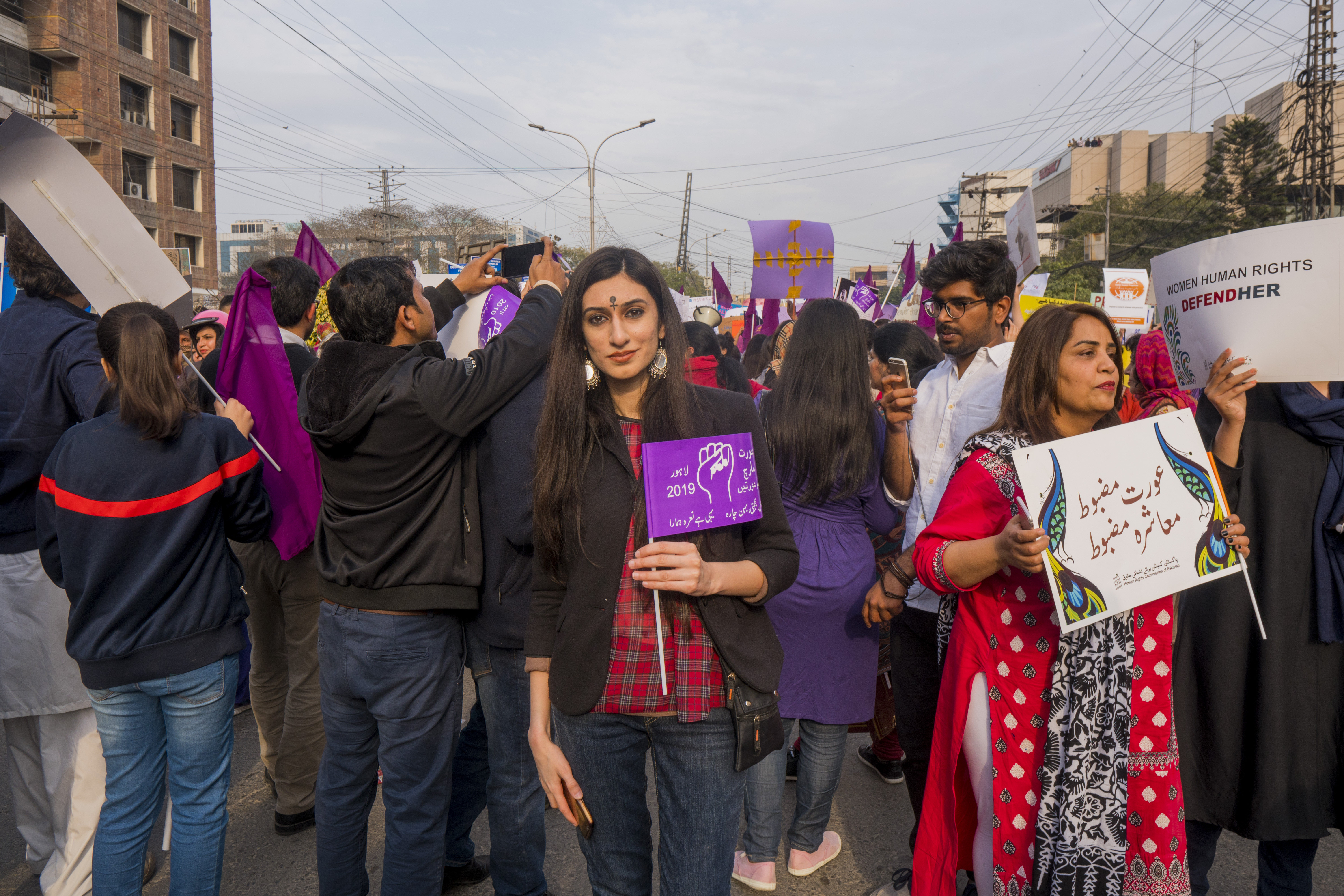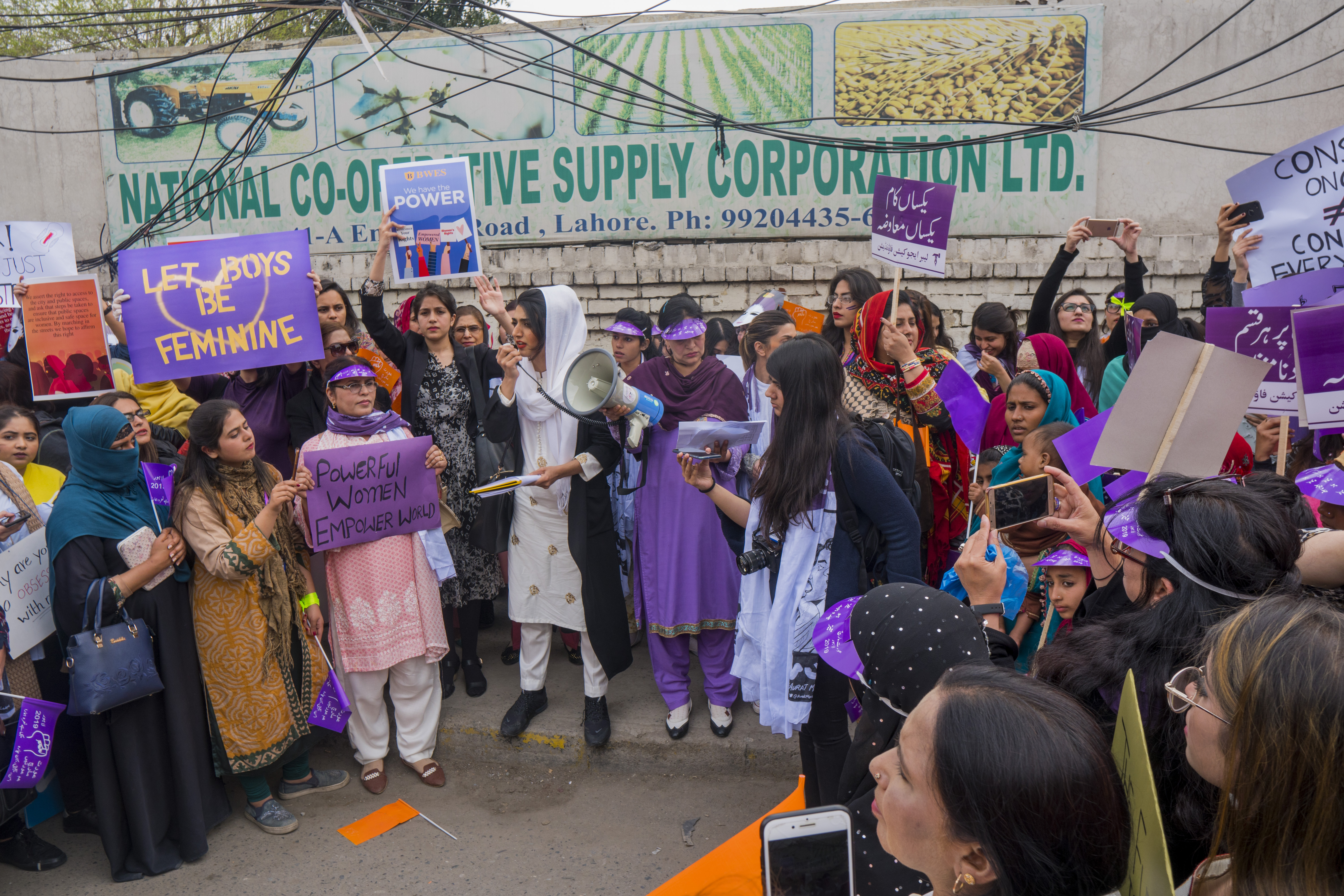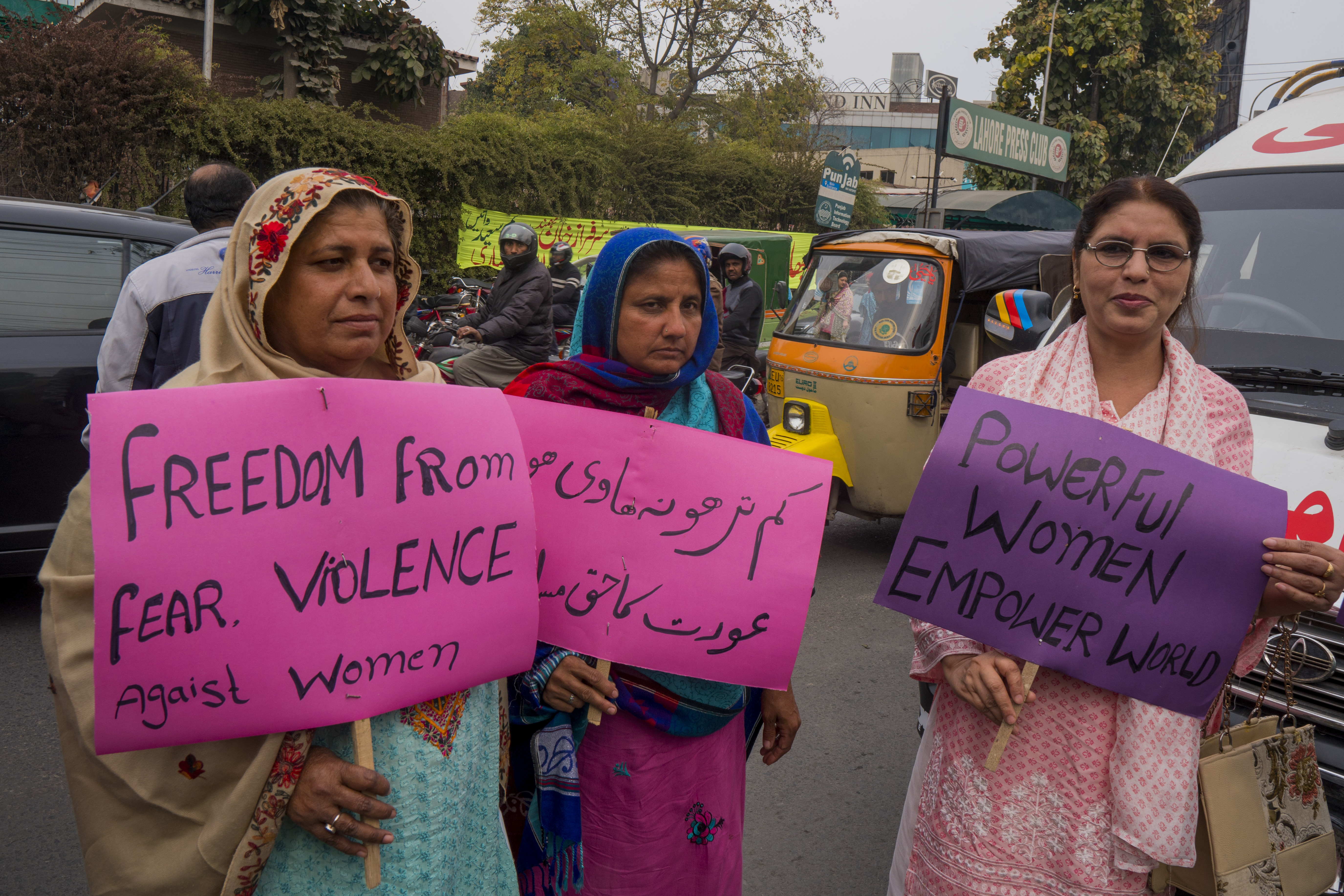With International Women’s Day falling amid threats of war, anti-violence themes have become a prominent part of equality demonstrations
For VICE. Text By Sabrina Toppa, All photos by Saad Sarfraz Sheikh.
Nida Kirmani, a 40-year-old academic based in the Pakistani city of Lahore, still remembers being able to cross the border to neighbouring India with some routine questions and a wave through. Before 2017, Kirmani would make regular trips back and forth between the South Asian countries, visiting family members and friends and conducting research in Delhi.
With a Pakistani father and an Indian mother, Kirmani never felt compelled to choose between the countries, and – unusual post-1947, when the two nations gained independence from the British – Kirmani carried national ID cards from both. However, two years ago, on a return trip from Dharamshala, an Indian border officer tried to force her to surrender her Indian identity card, insisting that she had to choose. Despite the official’s attempt to sever Kirmani’s ties to India, she chose to maintain them.
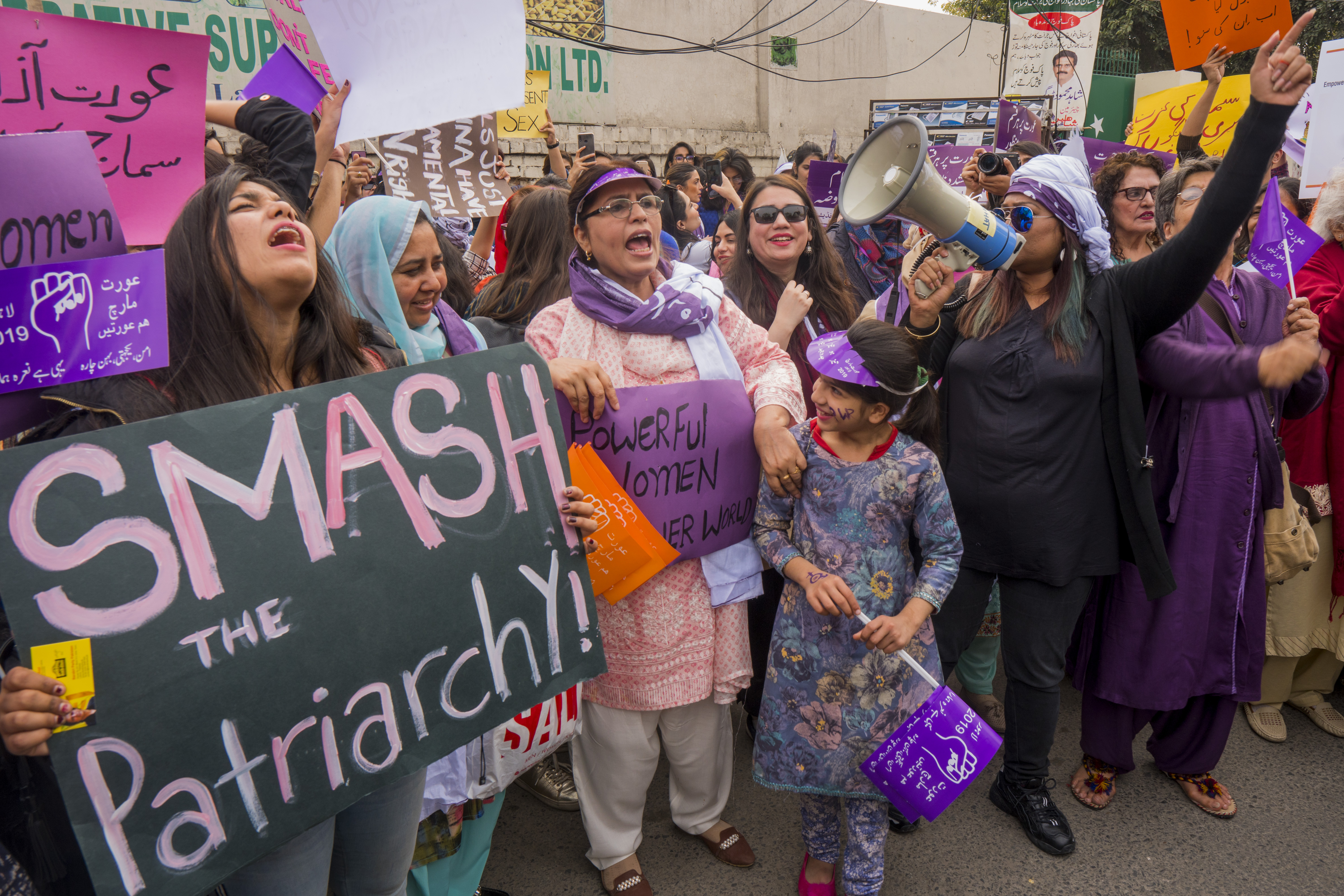
Recent events, however, have reminded the academic that not everyone feels the same way she does. Two weeks ago, over 40 Indian soldiers in the disputed territory of Kashmir – claimed by both India and Pakistan – were killed by a suicide bomber. Jaish-e-Mohammed, a Pakistan-based terror group, claimed responsibility for the attack, and the event set off a series of aircraft, artillery and naval exchanges between India and Pakistan that threaten to bring the nuclear-armed rivals to another war. As both governments seemed eager to rush towards conflict, Kirmani was annoyed, but not surprised. “I have lived and worked in both India and Pakistan, and have connections in both,” Kirmani tells me. “This has helped me see through some of the divisive rhetoric that is so pervasive on both sides of the border.”
Kirmani rejects the rabid patriotism on display from both countries. “As a feminist, I am very critical of nationalism in general, as it is often premised on the control of women’s bodies,” Kirmani says.
With this International Women’s Day falling during a period of high tension between India and Pakistan, anti-war themes have become a prominent part of the IWD marches throughout the country. Kirmani and other Pakistani women have gathered nationwide to celebrate women’s rights in Pakistan and demand access to public spaces for women and transgender people; the end to gender-based violence and discrimination; improved labour rights for women; the inclusion of women with disabilities; greater reproductive justice; and an end to police brutality. To that, the organisers have added a call for an end to India-Pakistan tensions, violence in Kashmir and the hyper-nationalism that drives wars. Among the largest events are a series of marches organised in Pakistan’s largest cities – the Aurat March (Women’s March) and Aurat Azadi March(Women’s Liberation March”).
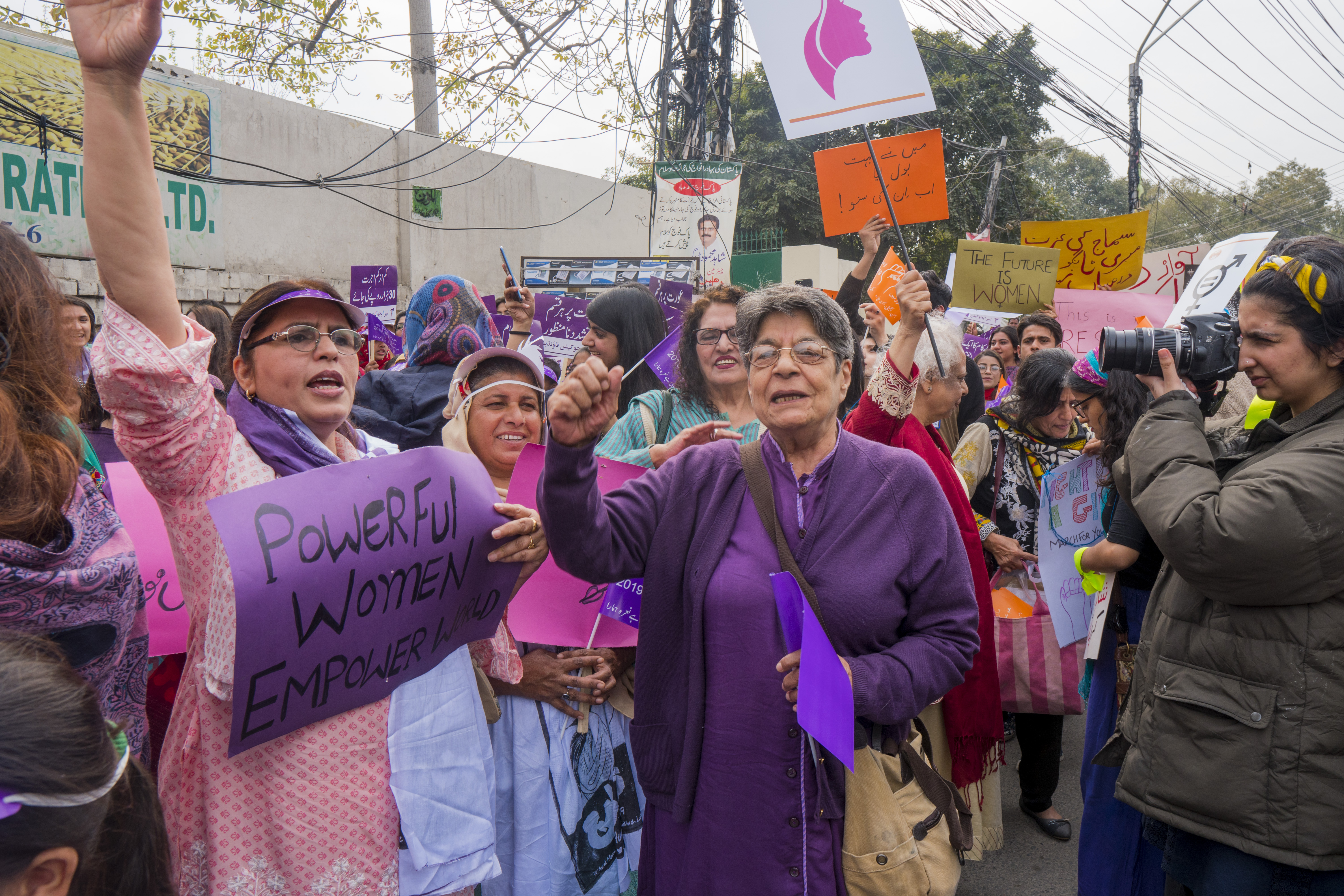
“Given the current political climate we’re in, we felt that it was important to include a feminist opposition to war in our set of demands,” says Shmyla Khan, one of the Aurat March’s organisers in Lahore. “Given that men are much more likely to fight wars, we have seen that women are often left to pick up the pieces.”
This has been true since the creation of India and Pakistan in 1947, when the violence that accompanied the Partition of British India involved the brutal rape and abduction of women on both sides. “I definitely think women no longer want war because of the intergenerational trauma women faced during Partition,” says Tooba Syed, one of the attendees of the Aurat Azadi March in Islamabad, and a political worker for the left-wing Awami Workers Party. “We remember what happened to our mothers during Partition. How can women of this region ask for war when we know our bodies are the battlefields in wars and our lives the ruins left behind?”
Sehyr Mirza, a peace activist attending Lahore’s Aurat March, still remembers stories her grandmother – who migrated from Jaipur to Lahore during Partition – told her of women carrying poison as a desperate suicide measure to avoid rape and abduction. Violence perpetrated on women during Partition is well-documented in South Asian literature and pop culture, ranging from Saadat Hasan Manto’s “Khol Do” to Rajinder Singh Bedi’s “Lajwanti”, says Mirza. Such violence replayed itself during the 1971 war between India and Pakistan, and has also been part of the current conflict in Kashmir. “As a feminist and peace activist, I believe that we must learn from our past and head towards a better future,” Mirza says. “Wars can only benefit vested political agendas and the arms industry.”
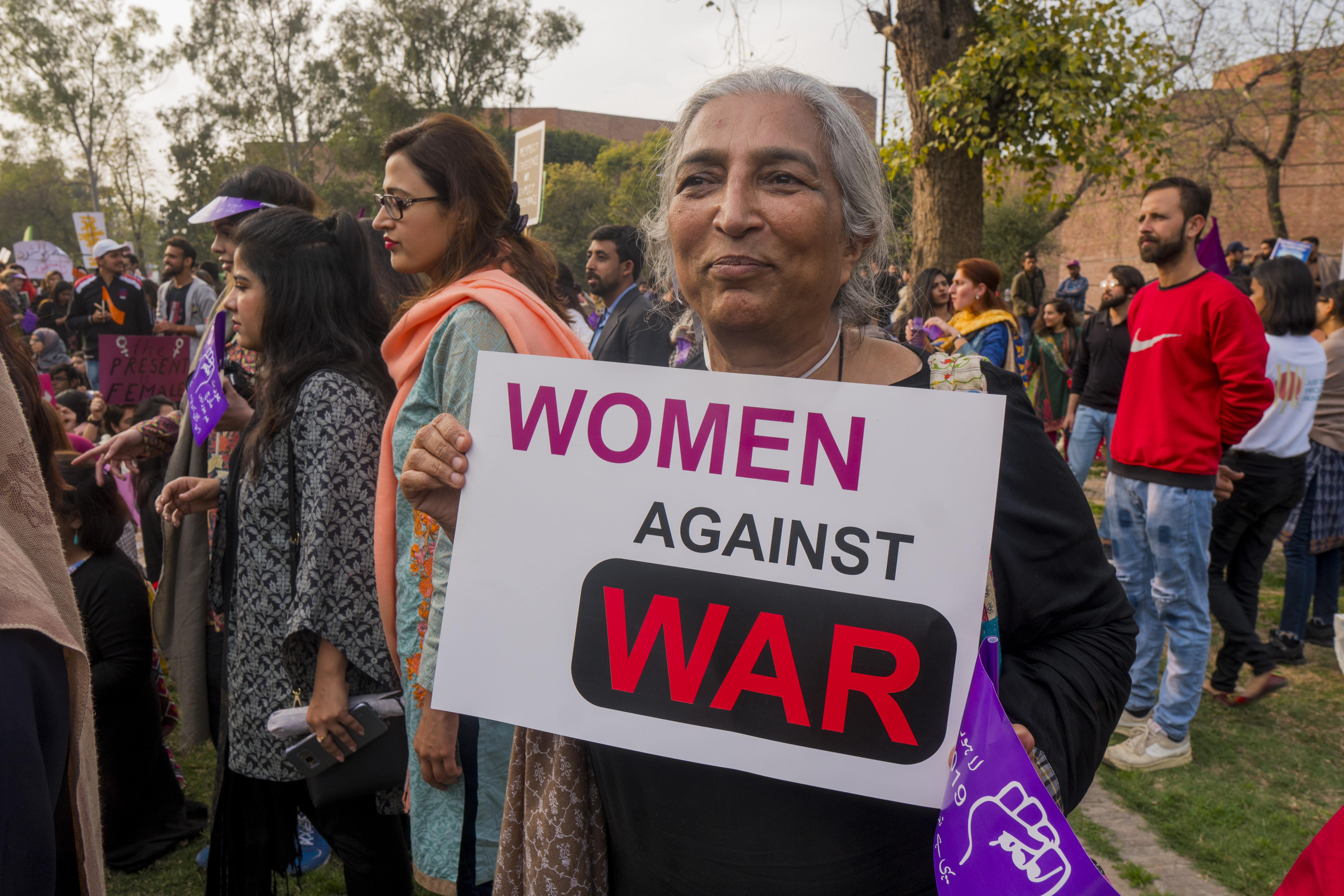
The anti-war stance was not initially meant to be a fundamental principle of Friday’s marches. Instead, the marches were intended to highlight the status of women’s reproductive, economic and legal rights in the country of more than 200 million. Women face discriminatory laws in inheritance, marriage and divorce, on top of being vulnerable to violence from regular social practices such as honour killings and acid attacks in Pakistan. Women also lag behind in education and employment opportunities. Indeed, the country’s education crisis disproportionately affects girls, with the majority of Pakistan’s 22 million out-of-school children being female, and Pakistan having one of the lowest rates of female labour market participation in the world.
After the February suicide bombing, Mirza, the Lahore-based peace activist, started the hashtag #AntiHateChallenge in Pakistan to denounce the terrorism. She posted a picture of herself holding a sign reading, “I am a Pakistani and I condemn Pulwama terrorist attack. #AntiHateChallenge #NoToWar.” Other Pakistani women followed suit, posting pictures on social media of themselves carrying identical signs. Although the backlash was nearly immediate, Mirza was happy to send a different message from her government, which had gone the route of categorically denying any culpability for the attack.
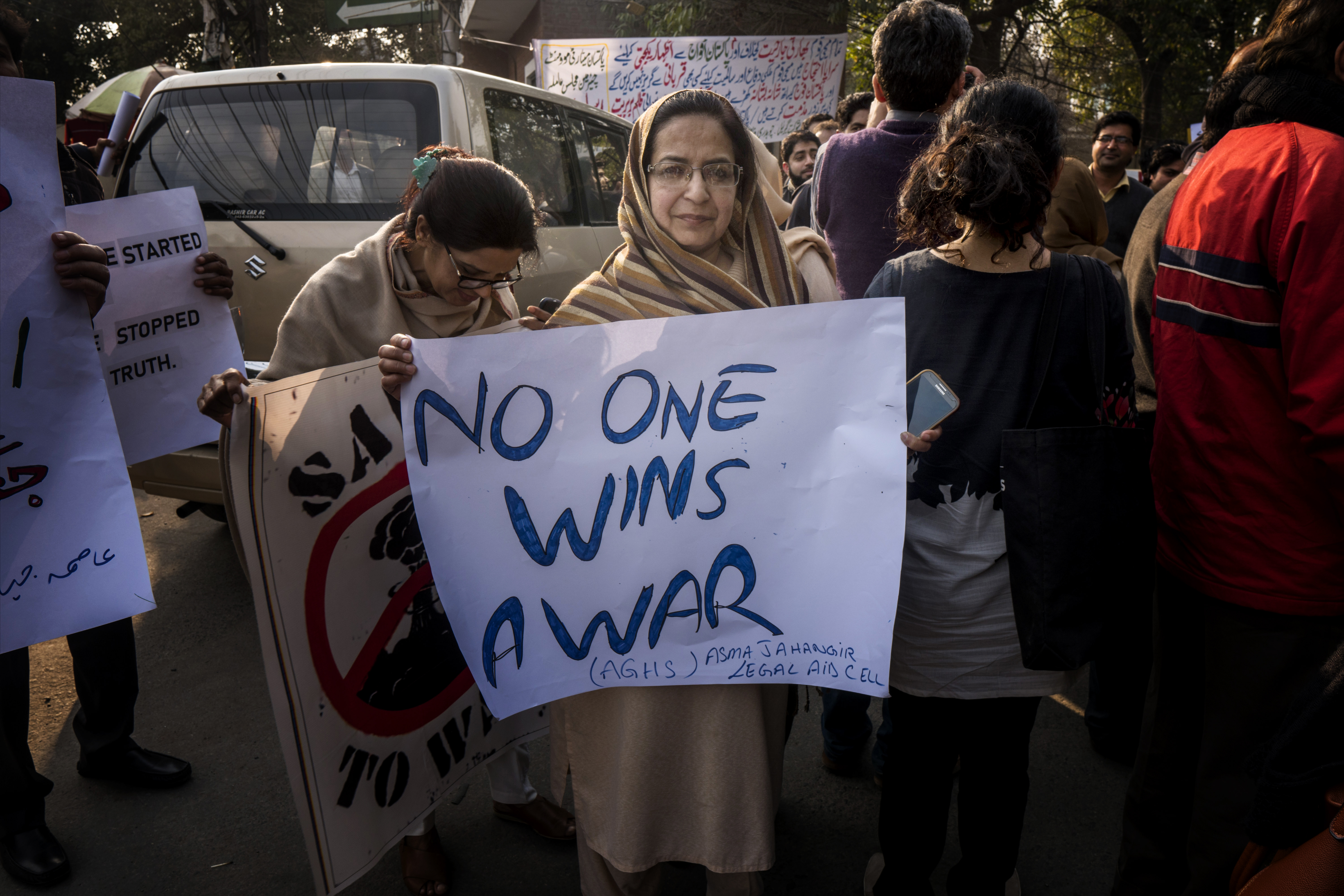
“The #AntiHateChallenge campaign was solely led by women from Pakistan to express solidarity with Indian friends. We were the first ones to break the silence and talk about peace,” says Mirza. “We mostly get to see such campaigns initiated and led by men.”
This year, women are taking a central stand against the region’s long history of conflict, militarism, and war, with both the Aurat March and Aurat Azadi March explicitly denouncing the creep towards war, and exhorting the nuclear-armed neighbours to issue a ceasefire in Kashmir. “We push for peace and against the war, the militarisation of our everyday lives, and a rhetoric of jingoism,” read a statement from Aurat March on Wednesday.
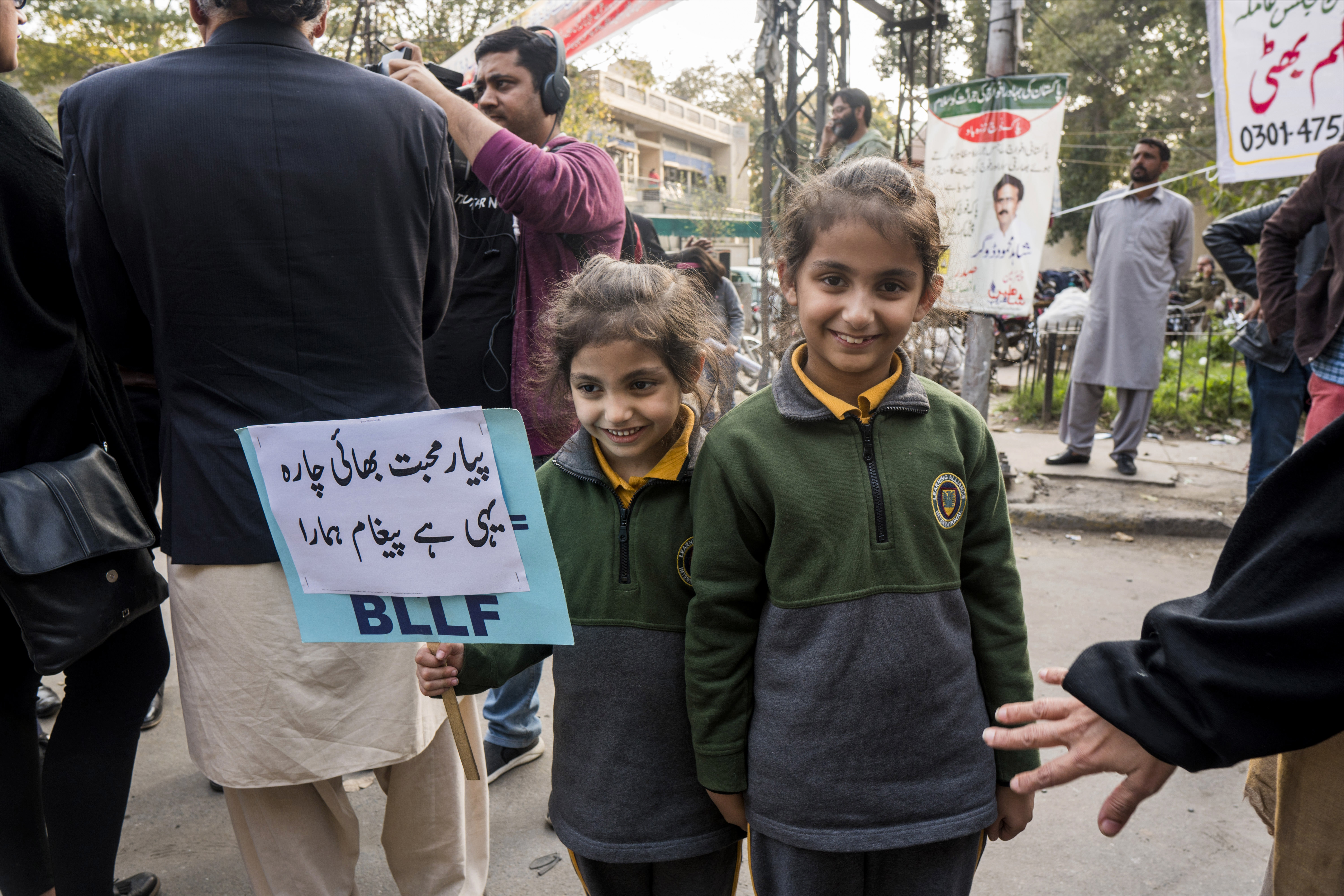
“Women would be the worst-off if a war starts between two nuclear-armed nations,” says Farooq Tariq, a Lahore-based political activist who helped organise the Global Standout for Peace in South Asia last week. “The financial crises during war means women would face tougher lives and have to compromise on food, health and education of the entire family,” he adds.
While social media has spread nationalistic displays of patriotism, it’s also allowed feminists to connect over their shared goal for peace. “We need to foster more spaces for dialogue between the people of the two countries,” says Syed. “I think Twitter has become the primary digital space where dialogue has taken place.” By using the hashtag #SayNoToWar, Syed has been able to meet like-minded Indians, and also askedher own government to release the Indian pilot who was captured by Pakistanis and subsequently let go last week.
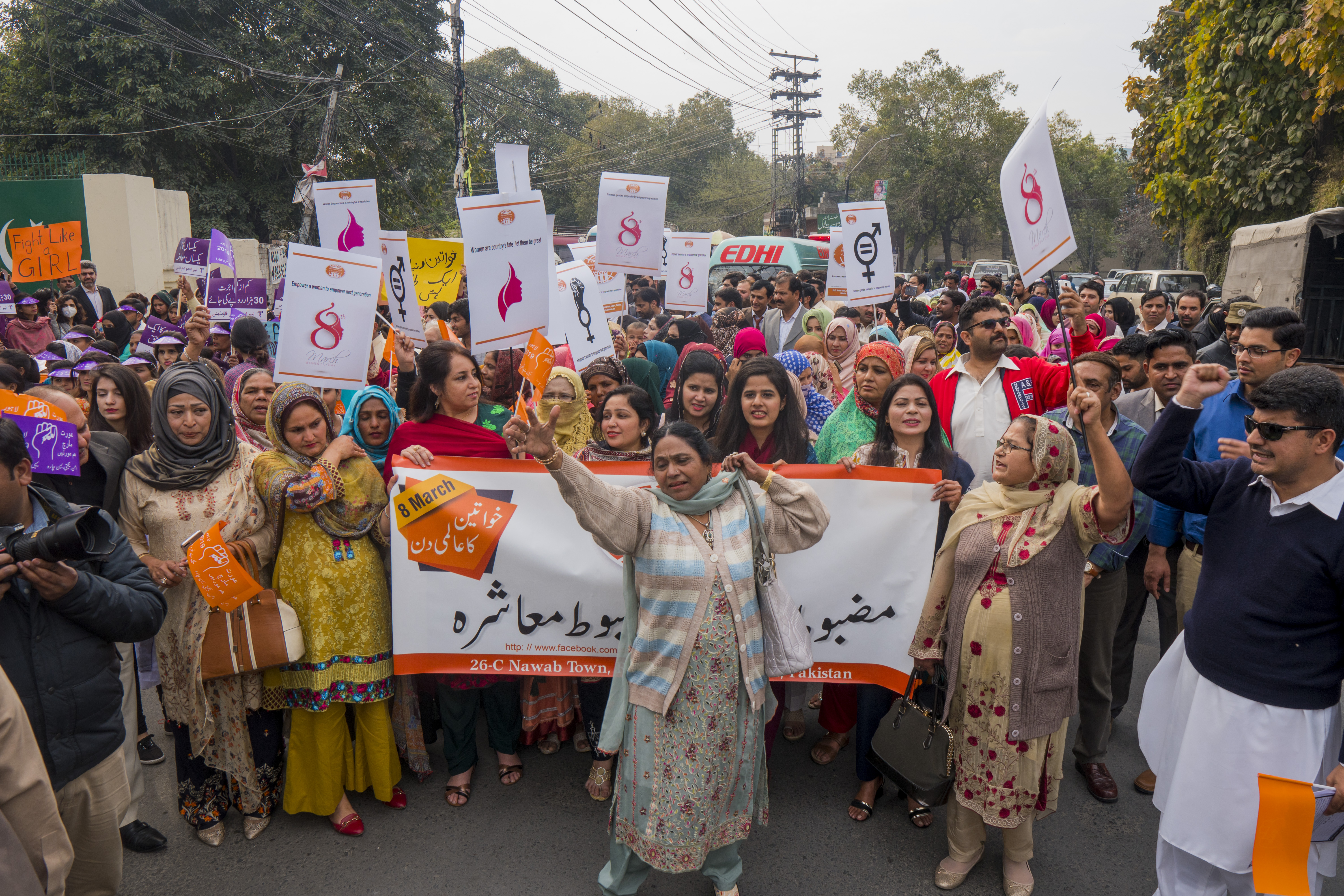
Currently, public opinion in Pakistan and India remains highly divided regarding the recent military actions in Kashmir. “We are sadly used to these periodic tensions,” Kirmani says. “They are part and parcel of the way nationalism has been conceived in both countries.”
Nevertheless, many Indians and Pakistanis continue to work towards building ties with one another and maintaining the relationships that already exist between the two countries. “I do have family and friends in India. Of course that makes it harder to dehumanise the ‘other’,” says Kirmani. “But I know we are also the ‘other’.”
Scroll down to see more photos from the 2019 Aurat March.
